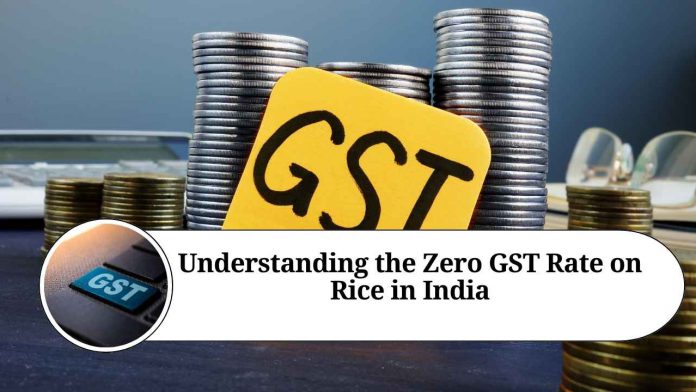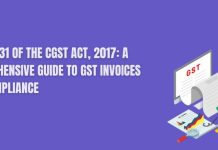What is GST?
Goods and Services Tax (GST) is an indirect tax that was introduced in India on July 1, 2017. It replaced various other indirect taxes such as Value Added Tax (VAT), Central Excise Duty, and Service Tax. GST is a comprehensive tax that is levied on the supply of goods and services.
GST Rate on Rice The GST rate on rice in India is 0%. This means that no GST is charged on the sale of rice. However, some processed rice products, such as rice flour, rice bran, and puffed rice, are taxed under GST.
Rice Flour Rice flour is made by grinding rice into a fine powder. It is used in various dishes, such as dosa, idli, and noodles. The GST rate on rice flour is 5%.
Rice Bran Rice bran is the outer layer of the rice grain. It is used to make rice bran oil and is also used in animal feed. The GST rate on rice bran is 5%.
Puffed Rice Puffed rice is made by heating rice kernels under high pressure. It is commonly used in snacks such as bhel puri and chivda. The GST rate on puffed rice is 5%.
Benefits of Zero GST on Rice
The zero GST rate on rice is beneficial to consumers, especially those with low incomes, as it helps to keep the prices of rice low. Rice is a staple food in India and is consumed by a large population. A zero GST rate on rice helps to ensure that it remains affordable and accessible to all.
Moreover, the zero GST rate on rice also benefits the farmers who grow rice. Since there is no GST on rice, the farmers are not burdened with additional taxes, and they can sell their produce at a fair price.
Impact of GST on Processed Rice Products
The GST rate on processed rice products such as rice flour, rice bran, and puffed rice is 5%. This means that these products are subject to a higher tax rate than raw rice.
The higher tax rate on processed rice products can affect the businesses that produce and sell them. The higher tax rate may result in increased prices of these products, which can reduce the demand for them. Additionally, it may also reduce the profitability of the businesses that produce them.
However, it is important to note that the GST rate on processed rice products is still lower than the tax rate on other food products, such as processed meat and dairy products.
Conclusion
In conclusion, the zero GST rate on rice is beneficial for both consumers and farmers. It helps to ensure that rice remains affordable and accessible to all. While the GST rate on processed rice products is higher, it is still lower than the tax rate on other food products. It is important to understand the GST rates on different products to avoid any confusion or miscalculation while purchasing or selling them.
Other Related Blogs: Section 144B Income Tax Act
Frequently Asked Questions (FAQs) on GST Rate on Rice
Q. What is GST?
Goods and Services Tax (GST) is an indirect tax that was introduced in India on July 1, 2017. It replaced various other indirect taxes such as Value Added Tax (VAT), Central Excise Duty, and Service Tax.
Q.What is the GST rate on rice?
The GST rate on rice in India is 0%. This means that no GST is charged on the sale of rice.
Are there any processed rice products that are taxed under GST? Yes, some processed rice products such as rice flour, rice bran, and puffed rice are taxed under GST at a rate of 5%.
Q.Why is the GST rate on rice 0%?
Rice is a staple food in India and is consumed by a large population. To ensure that it remains affordable and accessible to all, the government has set the GST rate on rice at 0%.
Q.How does the GST rate on rice benefits farmers?
Since there is no GST on rice, farmers are not burdened with additional taxes, and they can sell their produce at a fair price.
Q.What is the impact of the GST rate on processed rice products?
The higher tax rate on processed rice products can affect the businesses that produce and sell them. The higher tax rate may result in increased prices of these products, which can reduce the demand for them. Additionally, it may also reduce the profitability of the businesses that produce them.
Q.Is the GST rate on processed rice products higher than the tax rate on other food products?
The GST rate on processed rice products such as rice flour, rice bran, and puffed rice is 5%. This rate is lower than the tax rate on other food products, such as processed meat and dairy products.
Q.Is it important to understand the GST rates on different products?
Yes, it is important to understand the GST rates on different products to avoid any confusion or miscalculation while purchasing or selling them. It can also help businesses to plan their pricing strategies and understand their tax liabilities.




















